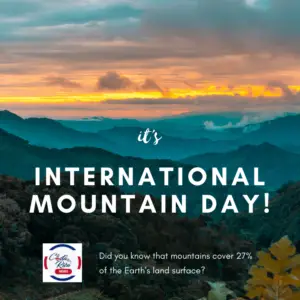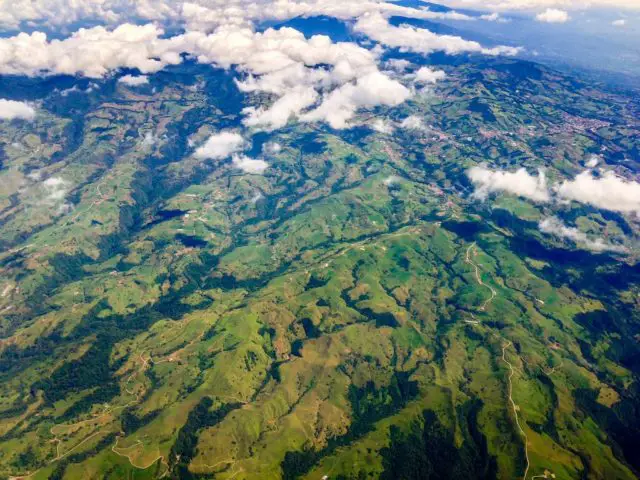
Mountains are home to 15% of the world’s human population, and shelter a quarter of land animals and plants and supply fresh water for more than half of humanity. That is why its preservation is key to our survival.
#MountainsMatter
Mountains are actually extremely important (they do have their own holiday!) and integral to life on our planet for human beings, animals, plants —pretty much the entire global ecosystem. The Food and Agriculture Organization of the United Nations (FAO) is the body responsible for organizing this worldwide commemoration.
The United Nations General Assembly designated December 11th, as the “International Mountain Day”. Since 2003 it has been held every year to raise awareness about the importance that mountains have for all life, to highlight opportunities and limits in mountain development and to build alliances that bring positive changes, both for mountain inhabitants and for the global environment around the world.
“International Mountain Day” is celebrated on December 11th. We bet you already know that being the savvy readers that you are 😉
According to a report of the Mountain Zone Program in the Unit of Environmental Change of the University of Oxford, in the United Kingdom, “The tenth part of humanity receives its livelihood directly from the mountains”.
This is thanks to the fact that the mountains are a center of agricultural biodiversity par excellence, many of the foods we consume daily, such as rice, potatoes, quinoa, tomatoes, and barley, originate in them.
It should be noted that 6 of the twenty most important food crops for human consumption have their origin in the mountain ranges. In addition, a large part of the world population depends on mountainous areas to supply water, food and clean energy.
Unfortunately, mountains are under threat from climate change and overexploitation
Although it seems a contradiction, the inhabitants of the mountains are the people who suffer most from hunger in the world with great vulnerability to food shortages and malnutrition. Approximately 1 in 3 mountain people in developing countries are exposed to the risk of food insecurity. Climate change, land degradation, overexploitation, and natural disasters are also challenges facing the preservation of mountains.

That is why during the commemoration of this day is intended to raise awareness in the population about the importance of mountains. In addition to highlighting the opportunities and limitations in the development of mountain ranges such as those mentioned above.
Countries need to intensify their efforts to increase actions to conserve mountains. Similarly, the management and sustainable use of its natural resources and biodiversity in mountains, a more concerted effort in order to improve the quality of life of the human populations of the highlands and lowlands.
In addition to this, dialogue, exchange of information and experiences on successes and challenges in biodiversity management, among countries and agents of climate change must be promoted.
The UN report in economy matters states: “the levels of investment and financing for sustainable development in the mountainous regions, in the global, regional, national and community spheres should be increased through better integration with the private sector”.
Important Facts about Mountains:
- Mountains provide between 60% and 80% of all freshwater resources
- Mountains house 25% of terrestrial biodiversity
- Mountains contain 30% of the planet’s forests
- Mountains cover 27% of the Earth’s land surface
- 6 of the 20 most important food crops originate in mountains
- More than half of humanity relies on mountain freshwater for everyday life
Another important fact for our nation, as expressed by the Center for Environmental Conservation Monitoring of the United Nations Environment Program (UNEP-WCMC), 47% of the Costa Rican territory, corresponding to mountain areas.
As for human settlements, 2% of our population calls mountain areas home.
That is why Costa Rica has implemented laws that protect these natural spaces. In addition to this, the country has been constant in the launching of campaigns that aim to raise awareness of both nationals and foreign visitors about the importance of preserving the environment and biodiversity.
